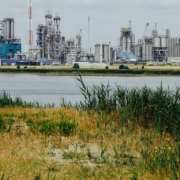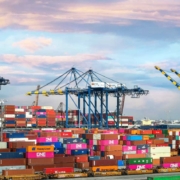The impact of climate change on your supply chain
More and more effects of climate change will leave their mark on international trade and production. Supply chains will also change significantly as a result.
When it comes to climate change, it is not just about direct changes in flows of goods, but also about the price and availability of goods. As a result, more and more countries are faced with a change in their trade balance.
Sea climate
Global warming also increases the average ocean temperature in specific places. This increase in temperature means that the oceans will absorb more CO2. For various types of crustaceans and fish, this means that they reproduce poorer and germs are more likely to affect the species. In the United States, the import of oysters is structurally increasing because the own catch continues to decrease. The quality and volume of the oyster farming is clearly declining.
Coffee.
Coffee plants grow around the equator in the relative coolness and humidity of mountain slopes. With the increase in temperature, the quality and volume of coffee cultivation also decreases here as a result of advancing bacteria and other investments. The result is a disappointing harvest and rising coffee prices on the world market.
Europe.
The consequences of climate change are also beginning to become visible in Europe. The hop harvest in Germany, always a fairly constant factor, is beginning to suffer from the unstable climate of longer droughts and heavy rainfall. In addition, the relatively warm winters ensure that more harmful insects survive better and start to form pests.
Paris.
Recently, government leaders signed the Paris climate agreement after years of backlash. Now that the economic effects are becoming visible and tangible, urgency is only beginning to emerge. It is really hoped that word and deed will be brought together in the coming years to counteract further destabilization of the climate. The predictions of the IPCC are anything but a far-from-our-bed show but hard reality now. Hopefully, all political parties are now aware of the seriousness of the situation. Unchanged or half-hearted policies will seriously disrupt the world economy in the coming decades. This also means major changes in their chains and the associated costs for supply chain managers. It is recommended to consider climate change as a prominent risk factor in your long-term decisions.
sources:
Datamyne.com
Union of concerned Scientists. – Climate hot map
Supply chain disruptions – Supplychain247









